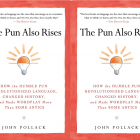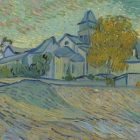Remembering José Emilio Pacheco
I was 21 years old when I first read José Emilio Pacheco, one of Mexico’s premier literary writers, who died earlier this month. I found him by being nosy, browsing through my friend’s bookshelves while he was having sex with his girlfriend in her father’s Land Rover, somewhere out on top of a hill. She refused to stay in the house should his parents come home (and also, presumably, because I was in the house), so they left me behind. I had no idea I would read a poem that would change my life that day.
There are so many hills in Queretaro but only two within my friend’s gated community. Armored guards at the gate. High walls with glass shard Romeo-Catchers to keep out the climbers. It was 2009 and everywhere—except Queretaro it seemed—there were bodies hanging from bridges, bodies buried in dirt, Narco banners hanging from overpasses, bloody stories on the news. But even then there was still love to be made and poetry to be read, life to be lived, sex to be had in Land Rovers on top of hills. So, I plucked this tattered, vestigial thing, one of only five books he owned, from his shelf. An anthology of required high school reading. I opened it up at random. I found this poem.
El mes atroz ya se fue
Y nos dejó tantos muertos
Que hasta el aire respira muerte
Y en el agua se bebe muerte.
No resisto la herida de tanta muerte.
México no puede ser el cementerio plural,
La inmensa fosa común
En que yace deshecho lo que esperábamos.
Al porvenir ya lo hundimos
En el abismo que se abre todos los días.
The Altar of the Dead
This atrocious month has finally passed
And left us so many dead
That even the air breathes death
And death is drunk in the water.
I can’t resist the wound of so much death.
Mexico cannot be the plural cemetery,
The enormous common grave
Where our hopes lie exhausted.
We already drown the future
In the abyss that opens each day.
I put the book down and thought about it for a long while; how relevant his poetry was to the anxieties of the moment, how much it mirrored the songs on the radio (Molotov’s “El Mundo Se Va Acabar”), the stories in the papers, everything on Mexican cable news about the world outside—the failures of Calderon and his administration. The hopes of a safer Mexico.
“Here, we can do anything,” my friend told me the night I arrived in Mexico City from Boston. “There are no rules in my neighborhood.”
So after reading, I took the golf clubs next to the books and hit stray balls from his terrace toward the far hill where the green Land Rover was parked, next to the satellite dishes that poured in the stories of the other Mexico outside the gates, the burning Mexico my friend and his family escaped every night.
Maybe it was the boy-delinquent inside my 21 year-old self. I wanted to see if I could hit the Land Rover. I digested the poem as I tried, having read it slowly three, four times over.
My mother had forced me to learn golf, in the hopes I’d be a polished young man. She made us do all kinds of things she thought would make us better Americans—baseball, batting practice, bolo ties (the three B’s).
It’d been too long, though, and my swing was off. I sliced the first ball and then drilled the second into base of the hill where it bounced off the road and into a culvert. I switched clubs from irons to woods and watched the sparks fly off the end of the brass. For the life of me I couldn’t hit a ball outside of the too-big gated community. Rows upon rows of ultra-modern million-dollar homes with glass walls that allowed you to peer into both stories at the same time—no curtains. Flashy Lamborghinis. Drunken teenagers driving too fast while the parents were away. There was so much money here you couldn’t swing a club and not almost dent or break or shatter something worth more than your entire life. But still I kept swinging. To this day I tell my fiancée it was the poem that made me do it.
From the terrace, I drilled the golf balls one after another after another, toward the Land Rover, my swing getting better each time. The balls getting closer.
Eventually I hit a ball that ricocheted off something and leaped, with the same angle it landed, further up the shallow side of the mountain—like a rock skipped on water. I watched it roll down the hill, skip again, and then shoot off over the low post of the fence, down into the highway below, and from there into the rest of Mexico where everyone else lived. That golf ball like an artifact from another world—a symbol of the absurdity of hyper-capitalism Pacheco explored in his poetry about his native Mexico City but also Mexico at-large.
It might sound silly or metaphysical, but I’m convinced that it was when the golf ball escaped the hill that Pacheco finally clicked with me. Resonated.
My favorite poems of his were those first ones that not only lamented the new Mexico but keyed me into the Mexico my parents left—the old one, the hopeful one, before billionaires and drug wars. To read Pacheco is to read the lost dreams of your parents and also the dreams they brought to the United States. And it’s this reason that Pacheco’s work isn’t only a criticism or link between contemporary Mexico and the Mexico of his youth, but a link between Mexico and Mexicans everywhere. It’s the reason he’s anthologized so heavily. And it’s also one of the reasons he’ll truly be missed.



